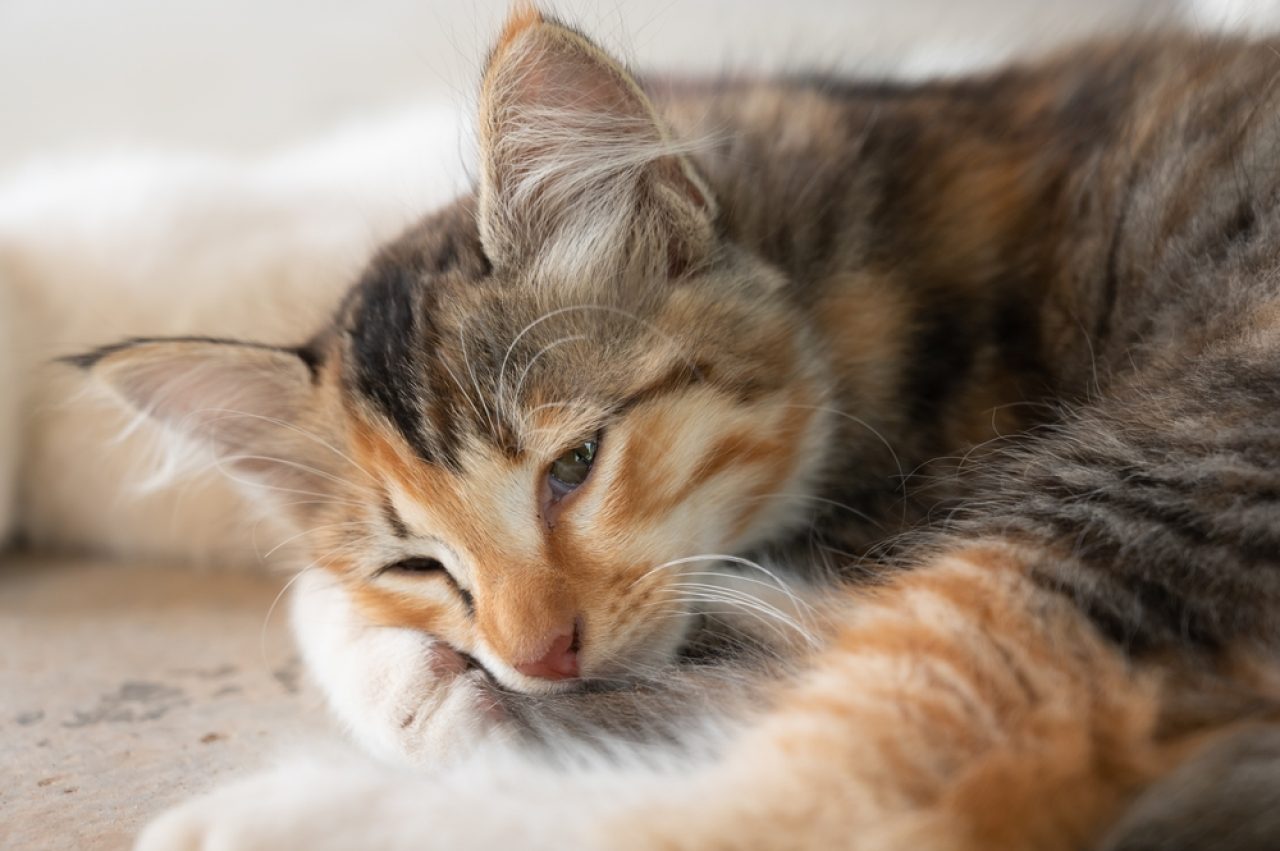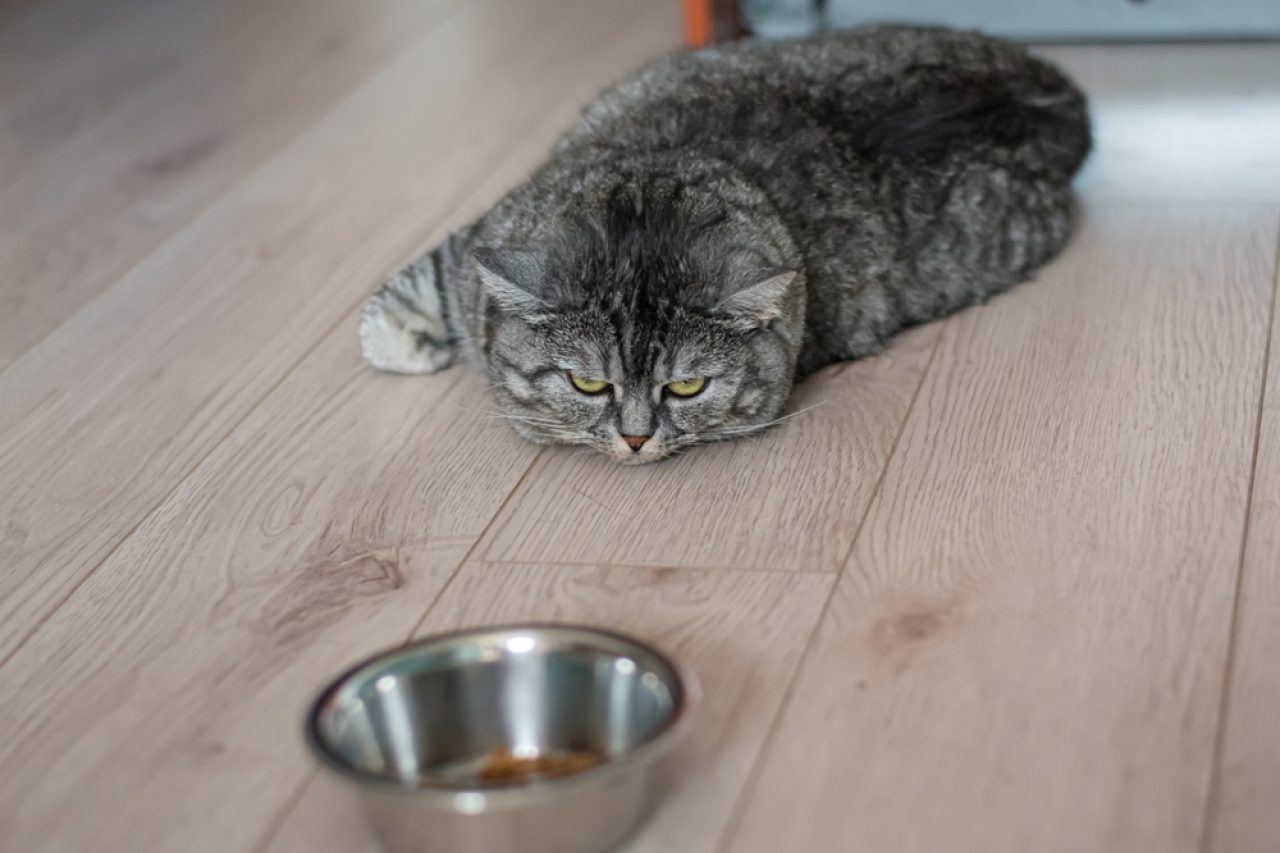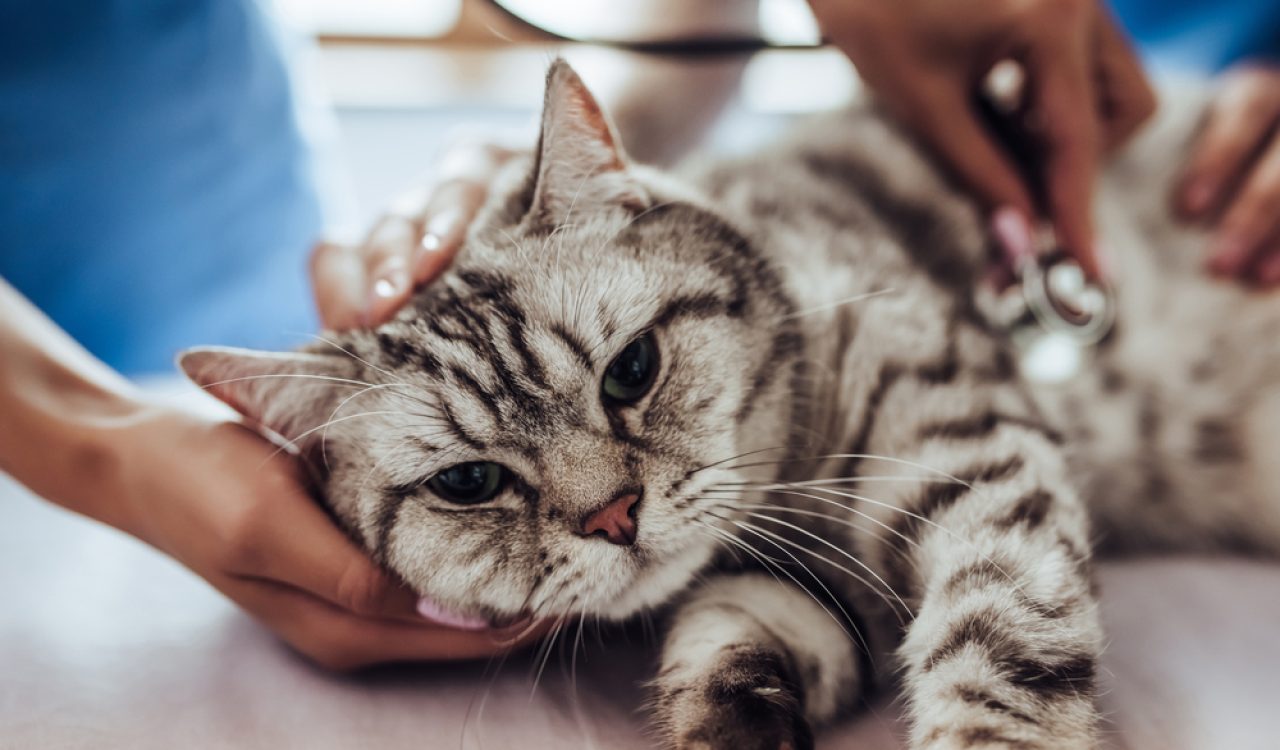📖 Table of Content:
As cat owners, we tend to switch to panic mode whenever we notice something unusual about our pets. We know we shouldn’t, but we can’t help but frantically search for an explanation for their change in behavior. It’s fine; we all do that! So today, you’re here wondering what cat laryngitis looks like.
Luckily for you, you landed at the right place. Here, you’ll find everything you need to know about this condition! Not that long ago, I was just like you. And when I got my answer, I decided to explain it well to all other cat parents out there. Enjoy your quick cat lesson.
What is cat laryngitis?
Cat laryngitis is not much different than the one humans can deal with. So that’s the first sign that you don’t need to stress as much when you notice something’s up with your fluffball. I know that every change is nerve-racking. But not every single one is worth worrying about.
Vets usually explain it by saying that your cat’s voice box is inflamed because she’s got the flu, irritation, or some other kind of blockage in her throat. In addition to that, they might sometimes mention changes in the nervous system that control the laryngeal folds, but that’s not very common.
If your cat develops laryngitis, she’ll probably lose her meow for a few days, but not more than that. She’ll also cough and possibly have bad breath. But those are all minor issues that usually don’t bother your fluffball for a long time.
However, sometimes cats decide to try to hide their health issues because they know you’ll react as soon as you notice them. And just like us, our pets aren’t really the biggest fans of going to the doctor (or, in their case, the vet).
But don’t worry, if the two of you spend a lot of time together, you’ll always easily notice when something’s wrong. And you’ll be able to react on time if there’s something serious going on.
What can cause cat laryngitis?
Just like with any other health issue, there are many possible causes. It could be as simple as the flu, but there’s still a slight chance that we’re talking about some bigger problems like cancer. However, the emphasis is on “slight chance.”
Here are some of the most common causes of cat laryngitis:
– some kind of physical obstruction in the larynx
– your cat might have inhaled an irritant (the most common ones are dust or smoke)
– upper respiratory infection
– Yyur cat suffered an injury
– paralysis of the laryngeal nerve
– different types of cancer.
However, it’s still possible that your kitty lost her meow for some completely other reason. Just like it can happen to us when we sing a lot or drink a cold glass of water and lose our voice. Cats can also lose their vocal abilities for a few days without suffering from a serious condition.
So no need to panic immediately. Instead, keep an eye on her and watch her behavior. If you see many of the symptoms I’m about to outline, it’s best you contact your vet and tell him everything you’ve noticed so far. That way, you’ll know for sure whether treatment is necessary or not.
What are the most common symptoms of cat laryngitis?
Googling about symptoms can be rather stressful. Have you ever felt like something is going on with your health and decided to read about it online? Just like most people, you probably have.
And let me guess – all it did was make you more stressed and confused about your possible health issues. There are always tons of options, but somehow we always get to read the worst ones and they scare us even more.
In order to save you from that, I’ve done my research well and reliable sources helped me compile a list of the most common cat laryngitis symptoms. They usually present themselves very quickly, and that’s especially true if your cat is also dealing with an upper respiratory infection.
If you notice any of these symptoms, it’s very likely cat laryngitis:
– keeping the mouth open more than usual
– hard and harsh coughing
– vocal changes (like raspy meow)
– struggling to swallow food and water
– struggling to breathe
– keeping the head low when standing
– breath smells bad.
And, of course, there must be some difference between ordinary cat laryngitis and one that’s a result of a URI. So here are some additional symptoms that might help you recognize the latter:
– persistent sneezing
– runny nose
– fever
– refusal to eat
– reduced activity
– watery eyes with discharge.
How is cat laryngitis diagnosed and treated?
If the vet believes your cat is dealing with laryngitis, he’ll perform a head-to-tail physical check on your feline. The most important part of the check-up is an endoscopic examination, for which your cat will need to be anesthetized.
Some professionals also require X-ray exams, but mostly if they’re examining for any unwanted mass growing inside your cat’s larynx. So don’t get scared if they suggest that, too; it’s just a precaution.
Treatments will begin immediately if the vet diagnoses your pet with cat laryngitis. It’s most likely that your pet will get diuretic medication because of the fluid buildup in the lungs and her larynx.
As I’ve already mentioned, one of the symptoms is loss of appetite. That happens because a sore throat makes it hard for your fluffball to swallow any food and even drinks. So she’ll likely also get some pain medications.
If the cause of laryngitis is foreign bodies that got stuck in her throat, they are removed. And the larynx gets free and quickly returns to its normal state.
If laryngitis appeared because of allergies, the swelling might have made breathing difficult for your cat. In that case, the vet usually prescribes steroids or antibiotic medication that can help your cat very quickly.
As the weather gets colder, we should keep our homes warmer. Cats don’t like the cold and are very sensitive when it comes to it. And that’s especially emphasized for us, pet owners. That way, we’ll protect them from getting the flu.
If they get a runny nose, we can clean it with a soft washcloth and that will help them breathe more easily. During the chilly months, it’s a good idea to change her diet too or add supplements to strengthen her immune system.
Cat laryngitis is likely nothing serious. However, if you see that the symptoms don’t improve after a few days, it’s always a good idea to reach out to your vet. They will provide the right treatment so you and your beloved kitty can sleep peacefully again. Good luck!



